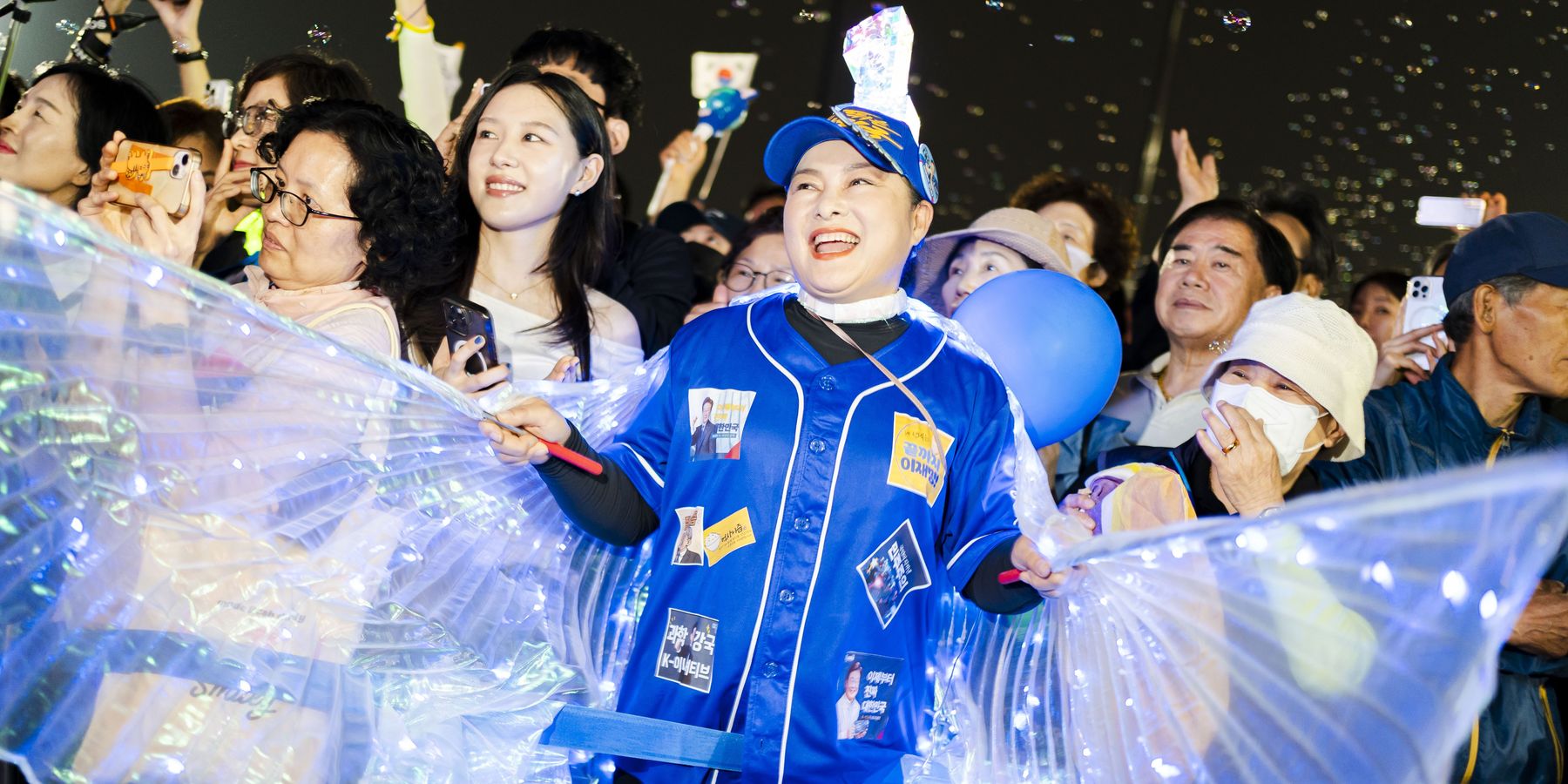UPDATE 6/3 8:50a.m. EST: Polls have closed in South Korea, with exit polling indicating that liberal Lee Jae-mying will win by a wide margin.
South Koreans will be heading to voting stations on Tuesday to elect their next president in the wake of Yoon Suk-yeol’s impeachment and removal from office in April.
According to the public opinion trends over the past weeks, Lee Jae-myung, the candidate from the liberal Minjoo Party, is heavily favored to win. In South Korea’s polarized two-party structure, both mainstream liberal and conservative parties have managed to build highly committed support bases that would allow each party to secure at least 30% in most elections. Consequently, the decisions of the remaining swing voters have become decisive for electoral success.
On that note, recent polls have shown the moderate-nonpartisan base’s clear preference for Lee Jae-myung over his main rival Kim Moon-soo of the conservative People Power Party. This trend is reminiscent of last year’s parliamentary election in which the swing voters tilted strongly toward the Minjoo Party, eventually handing them a landslide victory.
In shaping the favorable momentum for Lee Jae-myung and the Minjoo Party, the South Korean public’s widespread desire to punish Yoon for his December coup attempt has been seemingly decisive. Many swing voters likely find it hard to support the People Power Party, which remained supportive of Yoon throughout the impeachment saga.
However, the people’s choice of Lee and the Minjoo Party in this election would not mean continued support for them. After the election, although there would be more demand for investigations into the martial law plot and punishments for those involved, many citizens will begin to shift their attention to other important domestic and foreign policy issues.
As a government that also holds a supermajority in the parliament, the new government would face high public expectations for problem-solving.
Indeed, the South Korean public is preoccupied with an array of challenges. Among them, how the new government can manage potential differences and disagreements in the U.S.-South Korea alliance and maintain strong, mutually beneficial ties with Washington.
South Koreans are deeply worried about the Trump administration’s sweeping tariff increases and the ripple negative impacts it would have on their economy. A heavily export-dependent economy, South Korea is vulnerable to external pressures and has indeed felt the ramifications of U.S. tariffs targeting its key industries, including automobiles. Given this situation, whether the new government can successfully negotiate a smart deal with Washington will be considered extremely important.
The issue of alliance cost-sharing for U.S. Forces Korea is another big concern for South Koreans. During his first term, President Trump threatened to withdraw from South Korea if Seoul did not increase its cost-sharing contribution dramatically. While Washington and Seoul then managed to agree on a reasonable deal, Trump had indicated on multiple occasions that getting South Korea to pay a lot more remains his goal.
Last year, as a presidential candidate, Trump vowed to demand $10 billion from South Korea for stationing U.S. forces there — about nine times what the Biden administration and Seoul agreed in October 2024. Many South Koreans would presumably support paying more to maintain the current conditions, as over 90% of them believe the U.S. alliance is necessary for their security. But they would not find $10 billion or anywhere near it acceptable, and would hope the new government would find a middle ground with Washington.
When it comes to security cooperation, whether Seoul and Washington can align their objectives and priorities regarding North Korea and China is the elephant in the room. Most South Koreans perceive North Korea as the biggest security challenge and would want the U.S.-South Korea alliance’s military and diplomatic focus to remain on North Korea.
Nevertheless, it is uncertain if the Trump administration feels the same way. Several key Trump officials, including the Under Secretary of Defense for Policy Elbridge Colby, have signaled they would seek a restructuring of U.S. forces in Asia, including those in South Korea, to focus more on deterring China, particularly with a Taiwan contingency in mind.
This issue of “strategic flexibility” — allowing U.S. forces in South Korea to operate beyond the Korean Peninsula — could emerge as a source of tension in the alliance, as Seoul would be predominantly worried about dealing with North Korea and would also want to avoid a hostile relationship with Beijing.
From trade to regional security, there are difficult and sensitive issues for Seoul and Washington to address and to seek compromise, at least a mutual understanding to agree to disagree. It remains to be seen how Lee Jae-myung intends to approach these complex alliance questions. But no doubt, he will be given a very tough assignment starting day 1.
- Competing 'nationalisms' led to shocking showdown in Seoul ›
- Who is Lee Jae-myung, Yoon's potential replacement? ›
















